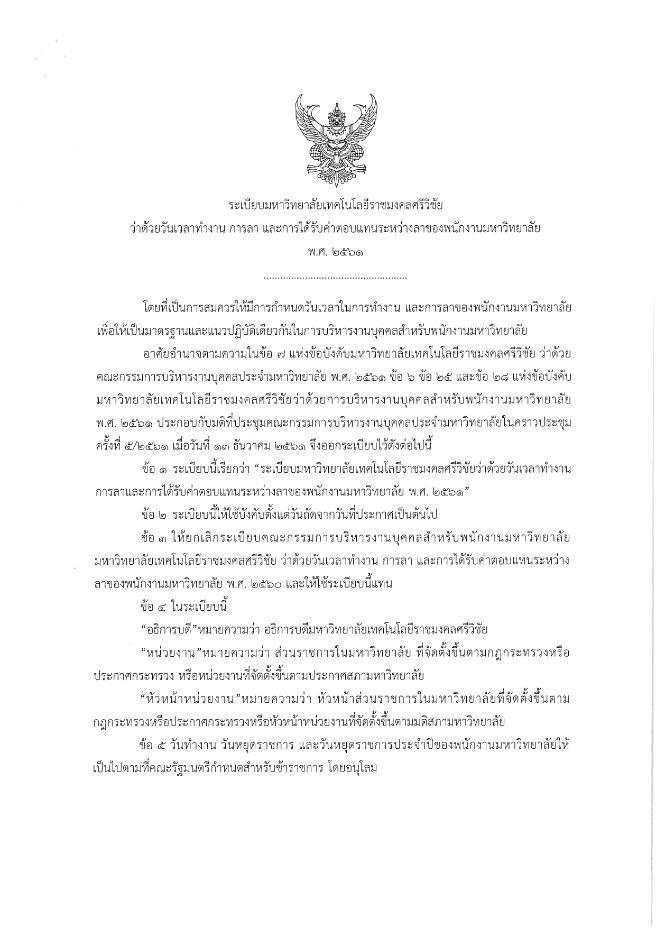Reporters: Asst.Prof. Saowanee Chaipech, Dr. kittichon Utaynapun, Asst.Prof. Sudanai Krualee, Mr. Ugrit Chammari
Evidence Date: during 2024 Jan-Dec
Related SDGs:

Related Indicators: 12.2.3
Details:
The announcement from Rajamangala University of Technology Srivijaya on sustainable consumption and production since A.D.2022.
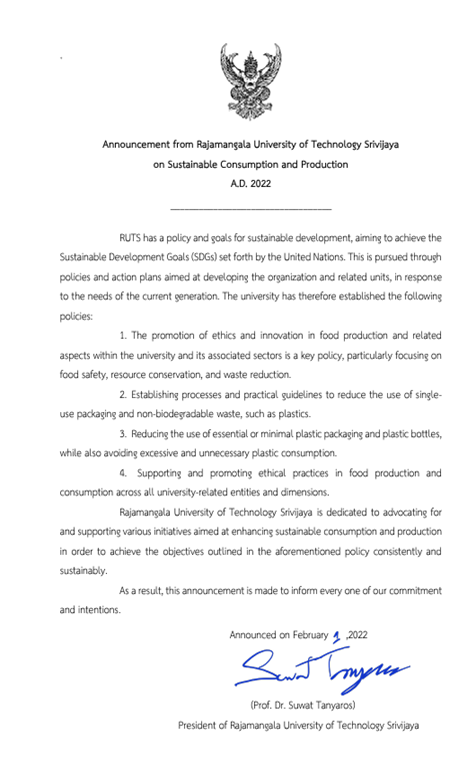 |
Evidence I: Join in building a green university by separating waste responsibly according to the policy. Rajamangala University of Technology Srivijaya.
Rajamangala University of Technology Srivijaya is committed to becoming a “Green University” that focuses on sustainable environmental management. One of the important policies is to encourage all staff and students to separate waste before disposing of it. To ensure efficient waste management and reduce the impact on the environment. Proper waste separation not only reduces the amount of waste that needs to be disposed of. It also helps that reusable items are properly handled, such as recyclable waste such as plastic water bottles, paper, beverage boxes, organic waste such as food waste, leaf scraps, etc. But the most important and often overlooked is “hazardous waste”. Batteries, electronic waste, such as old phones. Waste electrical equipment, these garbage. It should not be disposed of with general waste as it may cause chemical leakage. Impact on the soil Therefore, Rajamangala University of Technology Srivijaya has set up “hazardous waste disposal points” in various areas of the university so that everyone can dispose of this type of waste correctly. Once hazardous waste is collected, the university will transfer it to an agency that specializes in hazardous waste disposal. The process will focus on safety and environmental standards by campaigning for students to be an important force in driving a green university. Especially hazardous waste, it will reduce risks to the environment and also cultivate a sense of responsibility to society and our planet. Let’s be a part of the movement Rajamangala University of Technology Srivijaya towards a safe and sustainable environmental society.
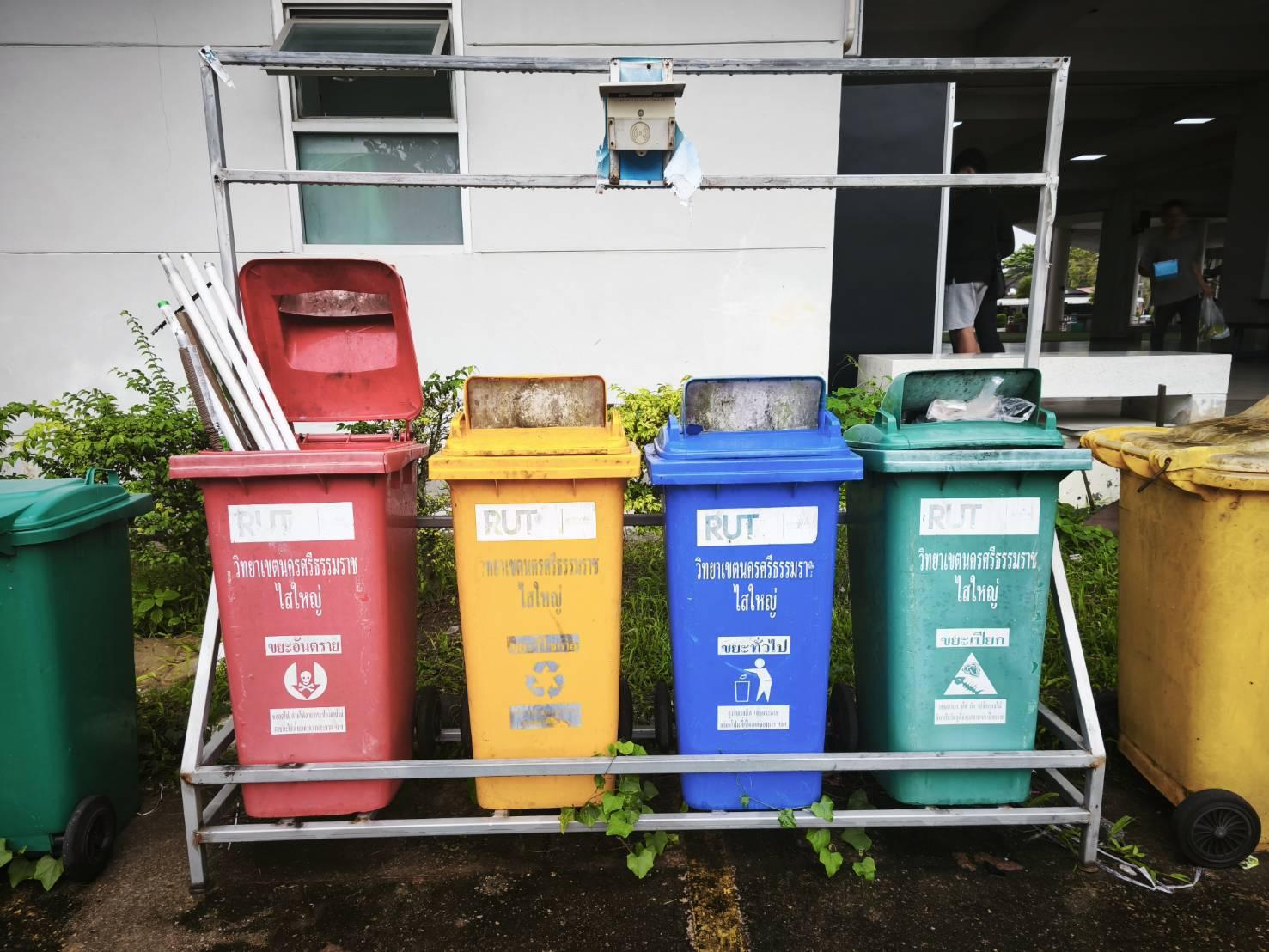
Evidence II : Proper management of black-chinned cichlids: Reducing the
spread and creating community economic value
The blackchin tilapia (Sarotherodon melanotheron) is an invasive alien fish species that has significantly impacted Thailand’s freshwater ecosystems, particularly in the southern region. Therefore, the removal and disposal of this species must be conducted with great caution and in an appropriate manner. Improper handling such as catching and releasing them back into the water or discarding them without proper treatment that can lead to further propagation and worsen the ecological problem on a larger scale.
Research conducted by Rajamangala University of Technology Srivijaya (RUTs) has identified an effective and safe method for destroying blackchin tilapia eggs. Freezing the captured fish at a temperature of –20°C for 24 hours can completely destroy all eggs and prevent reproduction in aquaculture systems. In the absence of a freezer, soaking the fish in ice or keeping them refrigerated for three days provides a practical alternative. This approach represents an efficient form of biohazardous waste management, effectively reducing the risk of invasive species spread and promoting sustainable ecological balance.
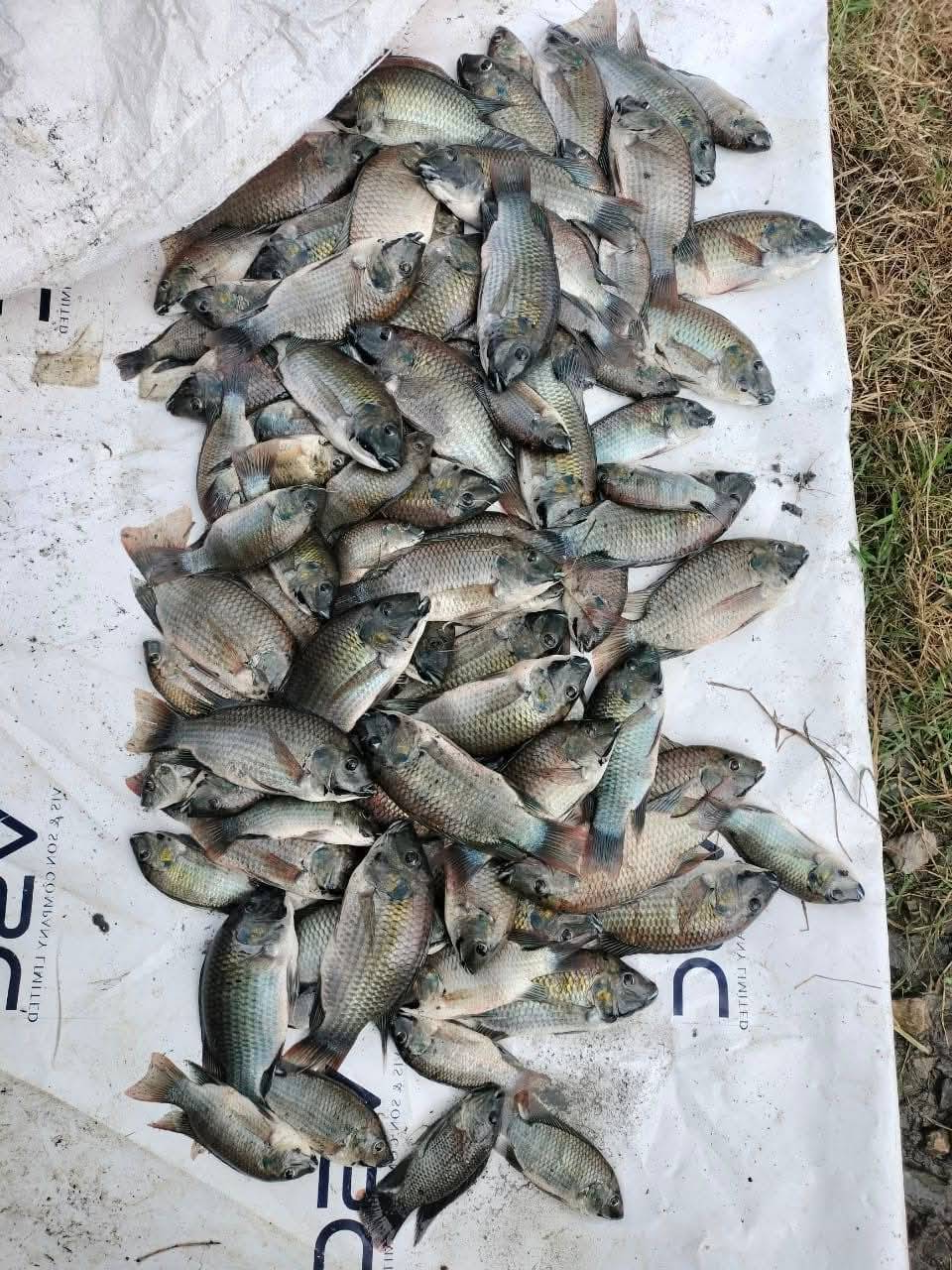 |
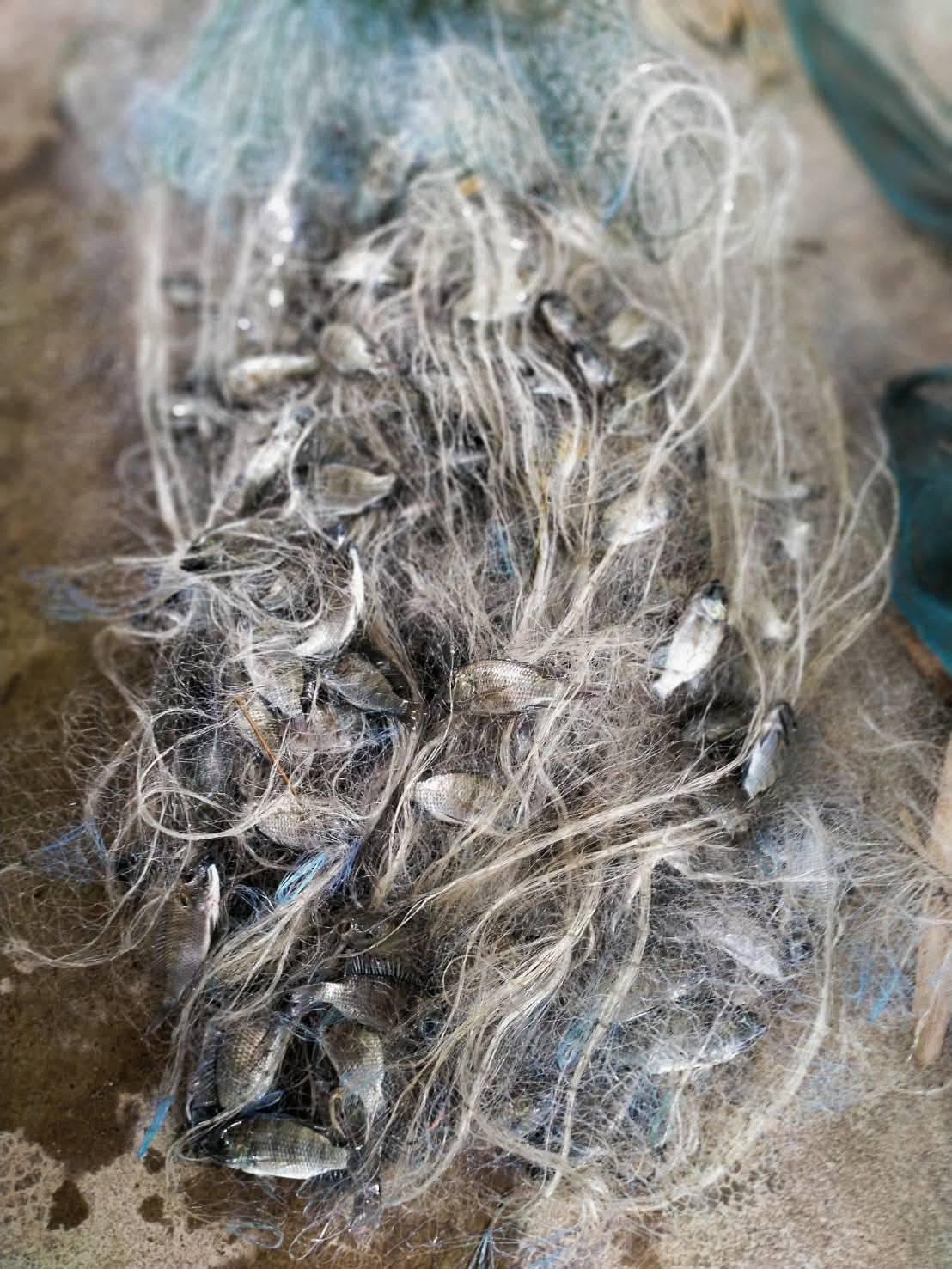 |
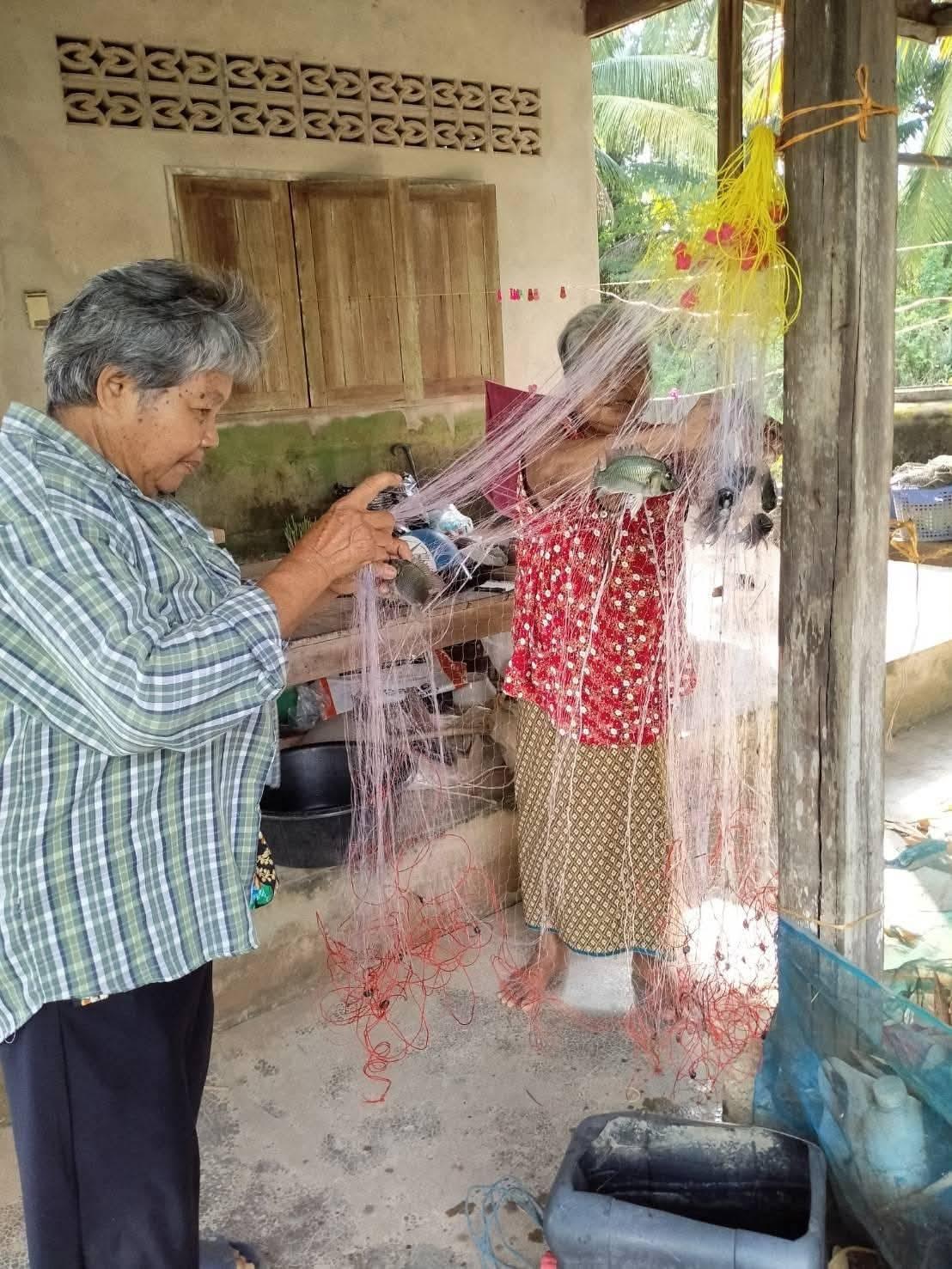 |
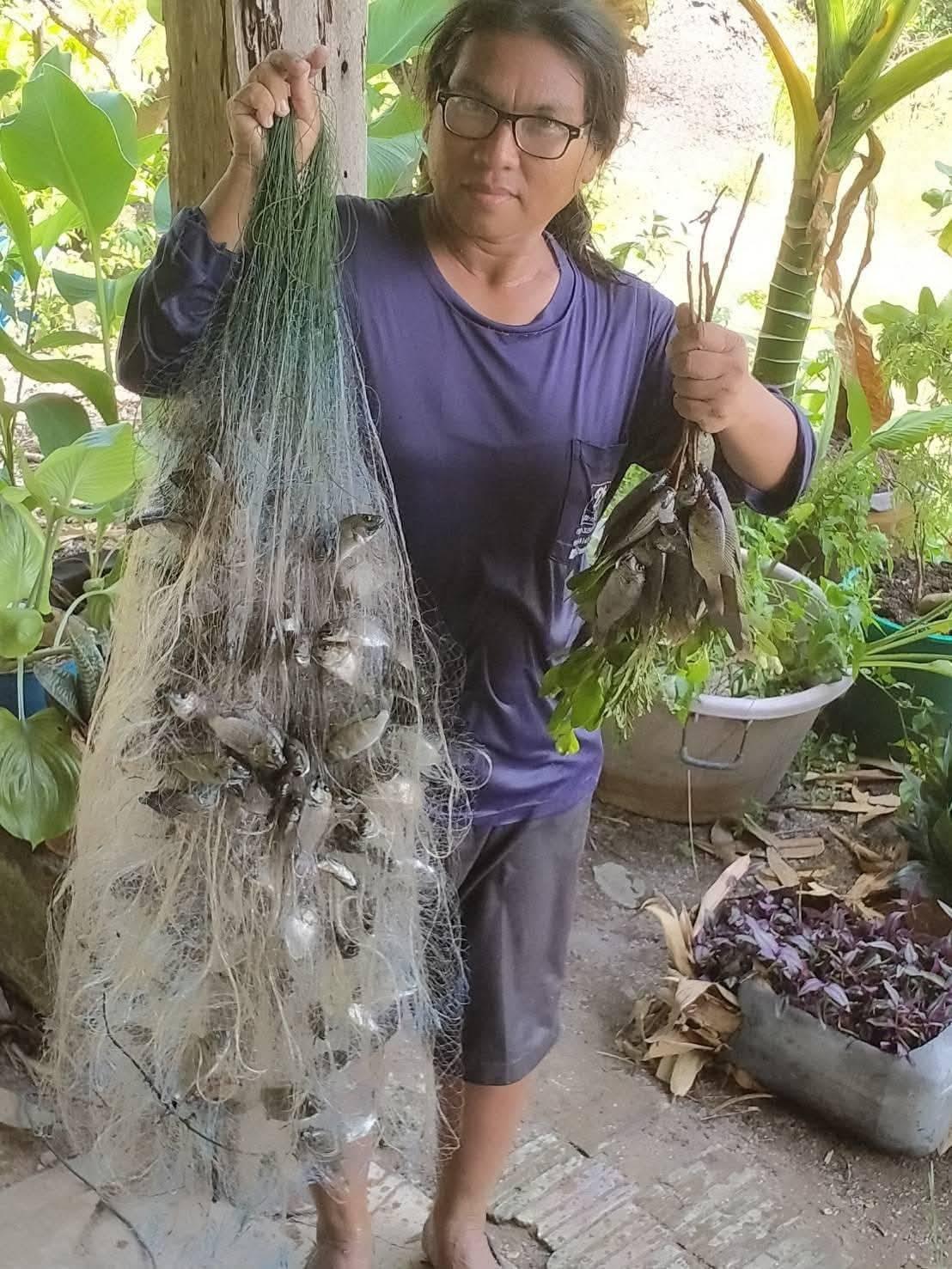 |

